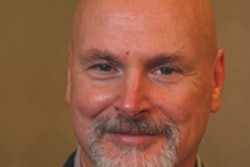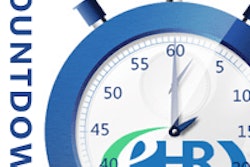
Minnesota looks to be the first state in the U.S. to require all healthcare providers, including dentists, to have certified, interoperable electronic health records (EHRs) in place by 2015. Could this be a trend that other states will follow?
While the federal mandate that requires most healthcare providers to implement EHR systems by 2014 does not directly affect dentists, the issue has begun to be debated at the state level. Now Minnesota has emerged as the only state to so far specify that general dentists, oral surgeons, and orthodontists also must comply.
The mandate was passed by the state Legislature in 2007 as part of the Minnesota e-Health Initiative. It requires that EHRs be interoperable so that data can be shared among multiple care providers. For example, dentists who take blood pressure readings would be able to share that information with their patients' physicians.
“EHRs are for better patient care, and there is less liability.”
"This was done in the hopes that it would lead to better care for patients," Carmelo Cinqueonce, executive director of the Minnesota Dental Association (MDA) told DrBicuspid.com.
He said it's fitting for the state to be in the vanguard of healthcare technology. "I think we're a mecca for healthcare and innovation, and it's appropriate that Minnesota is the first in adopting EHRs."
No penalties are involved, noted Cinqueonce, adding that the association will help its 4,100 members comply with the directive. "We have to venture cautiously regarding the adoption rate and making sure our providers can successfully integrate it into their practices. We hope the MDA will be able to assist them in implementing EHR systems effectively with the ultimate goal of making them better providers."
The MDA will host seminars this fall and next year to help bring its members onboard with the mandate, he said.
"Minnesota is leading the way," noted Mike Uretz, executive director of DentalAdvisor.com who has served on several national advisory committees regarding EHRs and advises dental practices on technology installations. "They are one of the most progressive states in terms of using technology in their healthcare system."
Although Minnesota's mandate doesn't include penalties for noncompliance, it's probably just a matter of time, according to Uretz.
"There are no 'teeth' yet, and the state isn't saying what potential penalties there will be," he said. "However, they probably wouldn't set a mandate if down the line they don't intend to enforce it. Just as in the medical EHR incentive program, initially they will probably ask practices to attest to compliance."
Federal programs
While the federal government's EHR incentive programs are mostly applicable to Medicare and Medicaid providers, EHRs provide many patient care benefits for dentists who aren't eligible for the incentive dollars, Uretz noted.
The federal mandate covers practices thathave at least 30% Medicaid patients. Those practices are eligible for up to $63,750 per dentist, spread out over six years, for acquiring certified EHR technology and using it in a "meaningful" way. The first $21,250 is paid out the first year just for implementing a certified EHR system, Uretz explained.
Dentists who are Medicaid-eligible can apply for exclusions from various criteria, Uretz noted. For example, if dentists do only a small number of prescriptions, they could be excluded from the electronic prescribing requirement. Or dentists can be excluded from requirements to report on certain medical clinical quality measures if they don't normally capture them.
To qualify for any of the government support, EHR systems must be certified by the federal Office of the National Coordinator (ONC). At this point, most dental software companies don't have ONC-certified systems, although several are developing them and working toward certification, and some have formed partnerships with certified medical EHR vendors.
For example, Patterson Dental's Eaglesoft Clinician product, introduced last November, has EHR ambulatory certification through the ONC, as does Dentrix Enterprise and NextGen Healthcare Information Systems' EHR dental software. And in May of this year, Professional Economics Bureau of America's XLDent meaningful use practice management system also gained EHR certification from the ONC.
"As EHRs become more mainstream in dentistry, which they will over the next couple of years, I think you'll start seeing more companies incorporating this in their software," Uretz said.
In the long run, dental practices should move toward implementing EHRs because they will benefit both the practice and the patients, he emphasized.
"Mandates will help accelerate things, but at the end of the day EHRs are for better patient care and there is less liability," he said. "And you're going to see features and functionality coming out in the next few years that will knock the socks off people."



















